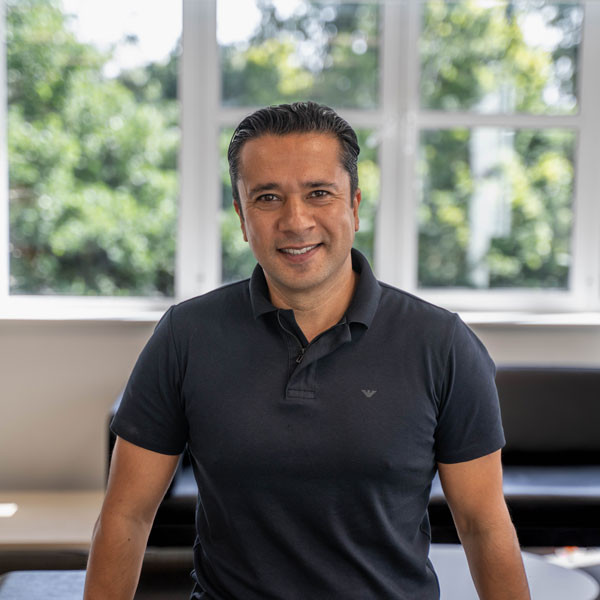 2024 Predictions: What business leaders should be focusing on
2024 Predictions: What business leaders should be focusing on
As business leaders across the UK return to work fresh from the festive break, full of optimism and enthusiasm, thoughts are turning to how they can enhance their operations to meet the demands of the year ahead. While undoubtedly there will be challenges to overcome, opportunities are plentiful – for those brave enough to embrace them.
So what should business leaders be focusing on in 2024?
The delivery of a stellar customer experience
The delivery of exceptional customer contact will continue to be at the heart of every successful organisation’s narrative in 2024. And with 90% of customers claiming that the experience a brand provides is as important as its products or services, it’s essential that organisations get it right.
Today’s customers want to interact with brands that offer choice – that means, not only offering a variety of products or services, but also providing choice as to how that organisation can be reached. For those organisations that haven’t already embarked on a journey of transformation, this means investing in an omnichannel offering to provide the range of digital channels that customers expect. Indeed, Gartner predicts that by 2025 digital messaging, such as WhatsApp and WeChat, will be the favoured method of delivering customer experience (CX), so organisations need to make sure that they have the right tools in place to deliver the functionality that their customers want.
With research finding that 86% of consumers would leave a brand after as few as two poor experiences and CX responsible for driving over two-thirds of customer loyalty – the delivery of a stellar CX will be pivotal to organisational success in 2024.
Doing more with less – being more creative with budgets throughout period of economic uncertainty
The economic headwinds and the geopolitical issues that have captured so many of the media headlines in 2023 will continue to impact businesses and consumers. Last year we saw the resulting impact of interest rate hikes, and the ripple effects of this will continue to be seen over the year ahead. Low levels of investment might prevail, while headcounts may be reduced still further, as organisations continue to be cautious.
The flip side of this is that businesses cannot afford to be left behind. And so, for players, such as ourselves, this presents an opportunity to help our clients by:
- Increasing efficiencies – helping our clients to extract the full value from their current tech investments and ensure they are using the full capabilities of their systems
- Reducing costs – using tools like AI to take over repetitive, transactional tasks, and redeploy staff to carry out more valuable tasks
- Increasing revenues – the combination of the above, coupled with the introduction of strategic technology solutions, will result in an improved business bottom line.
Making it personal
With 71% of customers today expecting personalised experiences from brands and 60% of consumers reporting that they will become repeat buyers after a personalised experience – it’s clear that personalisation needs to play a central role in organisations’ strategies over the course of the year ahead.
To do this effectively, and tailor communication to be both timely and relevant to customers, organisations need to ensure that they are capturing and using the insights gathered on their customers. This will enable agents and the wider customer service team to provide the best service possible, tailored to the unique needs of customers. When done well, a well-defined personalisation strategy delivers improved customer satisfaction and loyalty, a reduction in customer churn, enhanced brand perception, improved first-call resolution and increased sales.
The considered introduction of AI
Most of the organisations that we’re speaking to are interested in the adoption of AI in some capacity. The general acknowledgement in the industry is that AI is here to stay but most organisations haven’t yet worked out how to use it effectively. Our advice is that organisations looking to embrace AI must take a considered approach and seek to strike the right balance between making efficiencies and retaining the human touch, to deliver a seamless but personal customer experience. Over the year ahead, organisations will find the greatest success in the automation of routine, transactional tasks – allowing agents to focus on handling more complex customer cases that require more of the human connection.
Investing in people and the culture of an organisation
A focus on people should always be the epicentre of an organisation’s operations – after all, their happiness has a direct correlation on how well a business performs. Organisations looking to succeed in the year ahead should focus on creating an amazing environment for their teams to thrive in – fostering a culture built around the same key values that are embraced throughout the organisation, from the leadership team to everyone across the company. It’s been a challenging few years for businesses, but if organisations invest in and listen to their teams, they’ll retain key talent, foster a sense of wellbeing in the workplace, and deliver better results.
IPI in 2024
As to IPI and what the year ahead will hold for us – we are approaching 2024 with a continued vigour, looking to drive our company forward, with our focus on people and innovation at our core. We are lucky enough to have a brilliant team here at IPI – a team that we expect to develop and grow in 2024 – and we are committed to providing the best environment for our people to thrive in and providing exceptional services to each of our clients.
If you want to talk to any of our team about how IPI can help your organisation to reach your goals for 2024 and beyond, please get in touch here. We’d be happy to help.



